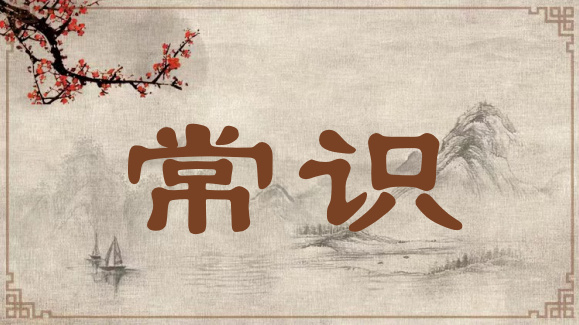General Knowledge

通常的认知。“常”即普通、一般或正常,也有恒常不变之义;“识”即知识、认识或见识。它是社会对同一事物普遍存在的日常共识,是一个群体日用而不知的共同精神基础。明治时期,日本学者用“常识”一词与英文common sense达成对译,于清末传入中国。其义与专门知识相对,主要指普通知识,也含有道德意蕴,被认为是判断是非善恶、决定进退取舍的标准或尺度。今主要指一个正常人所应具备的基本知识,其古今意涵有贯通性。
In this expression, chang (常) means "ordinary," "common," or "normal," together with "constant" and "unchanging." Shi (识) here refers to what is known, understood, or experienced. General knowledge is the social consensus on the basic matters of everyday life and the commonly shared spiritual background that is unknowingly assumed by the community. During Japan's Meiji Era, some Japanese scholars used 常识 to render the English phrase "common sense," which spread to China at the end of the Qing Dynasty. Its meaning is opposite to that of "specialized knowledge." Besides, "general knowledge" has moral implications, and has been upheld as the criterion or measure for telling right from wrong and good from evil, and for deciding whether to advance or retreat and making various choices. Today, the expression mainly refers to the basic knowledge a normal person should have. Its ancient and modern meanings are connected.
引例 Citations:
◎圣人之妙用变通,又自有不可测者,不可以私情常识议其方也。(朱熹《答程珙》)
圣人巧妙地运用变通之法,而且有其捉摸不透的地方,我们不能凭着一己之见和平常见识论其短长。
Sages skillfully use methods of adaptation, where something unfathomable is innate. It is beyond our limited understanding and general knowledge. (Zhu Xi: Reply to Cheng Gong)
◎神藻生常识,玄机即迩言。(沈鍊《步虚词二十三章》其十九)
华美的辞章源自通常的认知,深奥的道理离不开浅近的语言。
Splendid articles derive from general knowledge; recondite truths call for simple language. (Shen Lian: Twenty-three Buxuci Lyrics)
推荐:教育部 国家语委
供稿:北京外国语大学 外语教学与研究出版社
责任编辑:钱耐安





